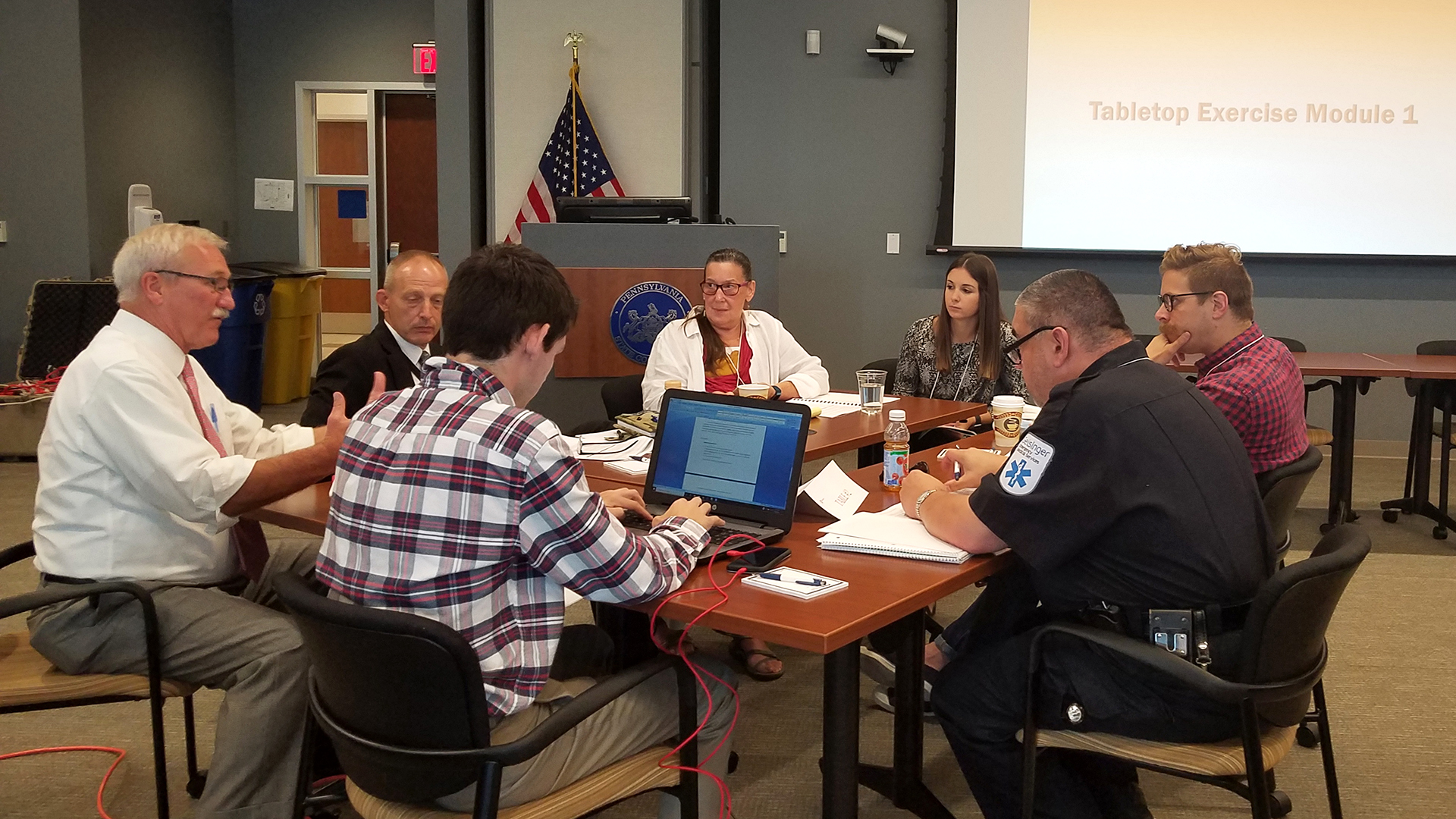Penn State teams with Pennsylvania Emergency Management Agency, Governor’s Office for Homeland Security, and PA Department of Health to host exercise in Harrisburg.
Update (January 2020): For more information, read the Tabletop Exercise After-Action Report.
Harrisburg, Pa. – The Penn State Center for Security Research and Education (CSRE), in collaboration with Penn State Harrisburg, Penn State Homeland Security Programs, and the Pennsylvania Emergency Management Agency (PEMA), held a tabletop exercise that addressed first-responder and whole-community response and resilience to the ongoing opioid crisis.
The exercise, which took place September 24, 2019, at PEMA headquarters in Harrisburg, Pennsylvania, also was supported by the Governor’s Office for Homeland Security and the Pennsylvania Department of Health’s Bureau of Public Health Preparedness. Dickinson Law in Carlisle, Pennsylvania, and Immaculata University were academic contributors.
More than 50 experts participated in the one-day program that involved local agencies in a discussion about effectuating comprehensive response to overdose incidents. Participant experts represented a wide array of backgrounds: state and local law enforcement agencies, emergency medical technicians, public health and healthcare professionals; and scholars from law, security studies, public policy, and public health, among other relevant areas. The participants addressed specific challenges, including resource sharing among responders; capacity building for long-term recovery; effective integration of non-traditional partners such as spontaneous volunteers and donators; and public education and outreach to improve prevention.
The exercise was based on a scenario, written by a Penn State expert group that included Ph.D. students under the guidance of the Pennsylvania Department of Health’s Bureau of Public Health Preparedness, that envisioned realistic response challenges stemming from a sudden increase in opioid overdoses in the lower Susquehanna Valley over the course of a weekend. By addressing the resources used and challenges faced in collaborative actions, the exercise aimed to strengthen the whole-community approach to emergency response.
The program also included briefings from state and local agencies, a scenario discussion moderated by Andrew Pickett, director of the Bureau of Public Health Preparedness at the Pennsylvania Department of Health, and a hot wash featuring an expert panel on the applied research response to the challenges identified in the exercise. The hot wash aimed to inform Penn State’s research agenda and discussed various aspects of research, including need and opportunities for interdisciplinary work; coordination across the Commonwealth; predicting hotspots of overdose incidents; measuring responder and societal resilience in the opioid crisis; and developing professional training for emergency responders across the whole community. Students and staff from the Penn State Harrisburg School of Public Affairs and the Penn State School of International Affairs in University Park assisted in the proceedings of the event.

